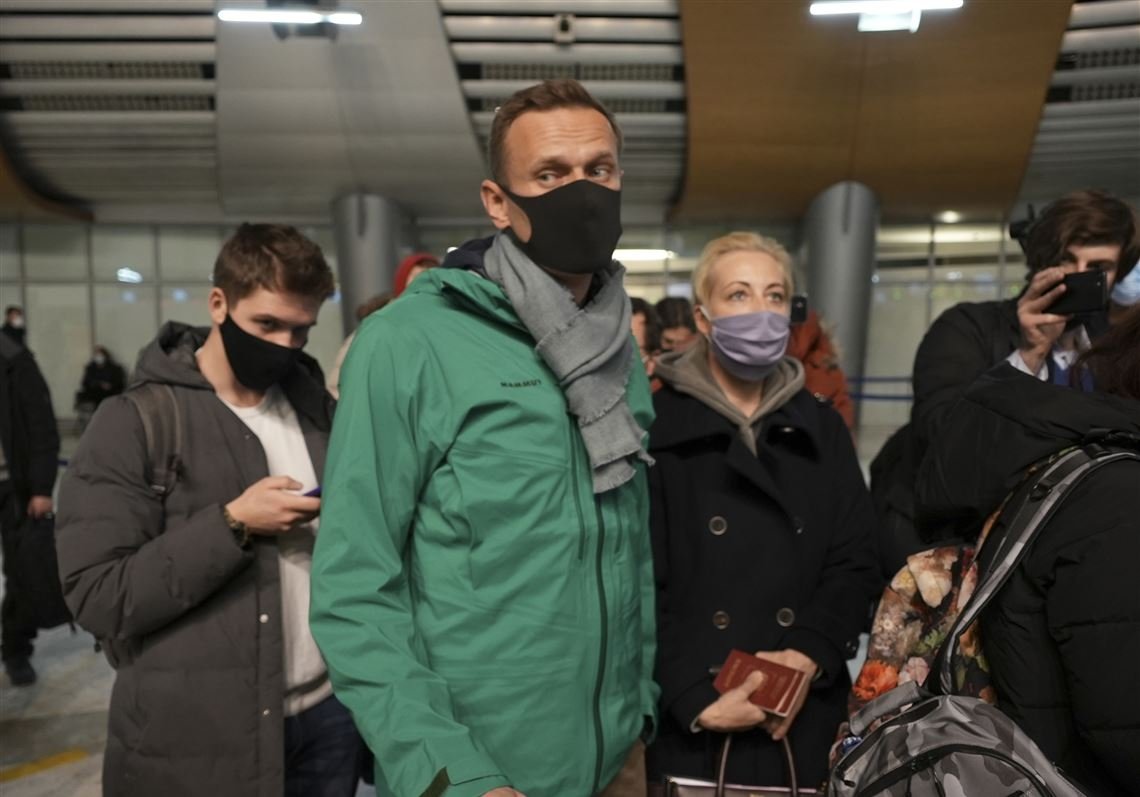Alexei Navalny EU and US demand release of poisoned Putin critic
The United States and several European governments have demanded the release of opposition leader Alexei Navalny from Russian detention.
Mr Navalny, 44, was detained soon after his flight from Germany landed in Moscow on Sunday.
He was returning to the country five months after he was almost killed in a nerve agent attack he blamed on the Kremlin. Moscow has denied involvement.
Russia’s foreign minister dismissed condemnation of the arrest.
Sergei Lavrov said Western politicians were using the case to “divert attention” from domestic problems.
Alexei Navalny – The basics
- Mr Navalny is an anti-corruption campaigner and the most prominent face of Russian opposition to President Vladimir Putin
- He attempted to stand in the 2018 presidential race, but was barred because of an embezzlement conviction that he says was politically motivated
- An outspoken blogger, he has millions of Russian followers on social media and managed to get some supporters elected to local councils in Siberia in 2020
Russia’s prison service said the Kremlin critic had violated the terms of his suspended sentence for embezzlement, and that he would remain in custody until a court ruling.
A court hearing was organised on Monday at a police station on the outskirts of Moscow. In a video released by his spokeswoman, Mr Navalny described the hearing as “lawlessness of the highest grade”.
What has the reaction been?
The US and European Union led calls for Mr Navalny to be freed, but stopped short of threatening any punitive action.
US Secretary of State Mike Pompeo said Russian authorities were trying to silence their critics, while incoming national security adviser Jake Sullivan said the Kremlin’s “attacks on Mr Navalny are not just a violation of human rights, but an affront to the Russian people who want their voices heard”.
- Alexei Navalny: Russia’s vociferous Putin critic
- Two hours that saved Alexei Navalny’s life
France, Italy, Germany and the president of the European Commission were also among those calling for his release.
UK Foreign Secretary Dominic Raab described Mr Navalny’s arrest as “appalling”.
“Rather than persecuting Mr Navalny, Russia should explain how a chemical weapon came to be used on Russian soil,” he said.
How was he arrested?
When Mr Navalny was poisoned last August, he was flown to Germany for emergency medical treatment. As he recovered, he said he intended to return to Russia. On Sunday, he made good on that pledge, boarding a flight despite warnings he would face arrest on landing.








